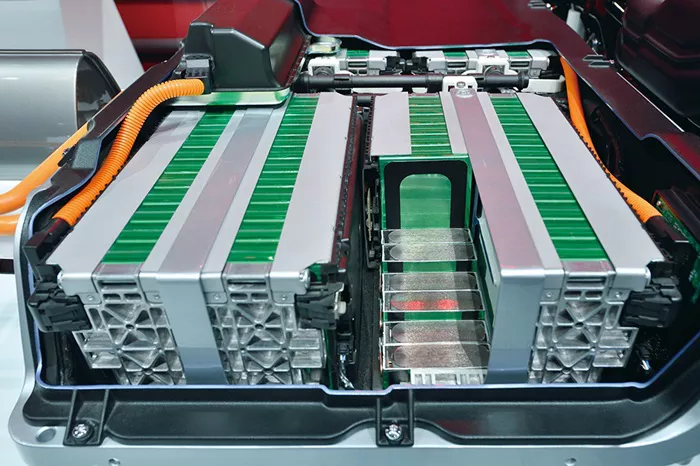Researchers at the Daegu Gyeongbuk Institute of Science and Technology (DGIST) in South Korea have developed a groundbreaking lithium-ion battery designed to prevent fires and explosions, potentially solving major safety concerns for electric vehicles (EVs) and other devices.
The new battery features a triple-layer solid polymer electrolyte that greatly enhances both fire safety and longevity. This technology is applicable for everything from smartphones and EVs to large-scale energy storage systems.
The breakthrough addresses a critical issue with traditional solid polymer electrolyte batteries. Initially, it was believed that switching from a liquid to a solid electrolyte would solve the problem of dendritic growth, where lithium forms tree-like structures during charging and discharging. These dendrites can cause dangerous internal short circuits. However, the new design prevents this by using a specially engineered structure.
A key innovation in this new battery is the use of decabromodiphenyl ethane, a substance that helps prevent fires, and a zeolite material that strengthens the battery’s structure. These improvements significantly enhance safety. Additionally, a higher concentration of lithium salt speeds up the movement of lithium ions, boosting efficiency and improving both discharge rates and charging times.
The battery’s structure also contributes to its performance. The middle layer adds mechanical strength, while the softer outer layers allow for faster energy transfer by facilitating the movement of lithium ions.
Thanks to these advancements, the battery shows reduced degradation over time. After 1,000 charging cycles—equivalent to 300,000-500,000 kilometers of driving—the battery still retains around 87.9% of its original energy capacity, significantly better than conventional batteries, which typically maintain only 70-80% of their energy density after the same number of cycles.
In the event of a fire within the battery, the new design allows the material to self-extinguish, making it one of the safest lithium-ion batteries ever created.
“This research is expected to make a major contribution to the commercialization of lithium metal batteries using solid polymer electrolytes, enhancing stability and efficiency in energy storage devices,” said principal researcher Kim Jae-hyun.
Related topics:
- Rural Fire Departments Adopt Battery-Powered Tools for Greater Efficiency
- Ufine Battery Unveils Groundbreaking Energy Solutions at CES 2025
- Over 500,000 Lithium Batteries Recalled After Fire and Injury Reports

